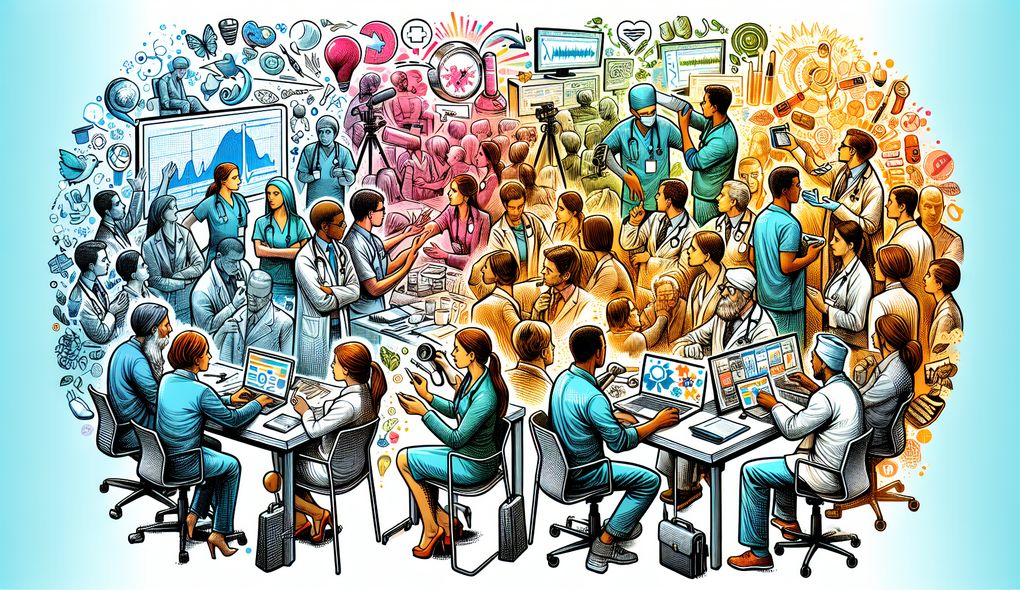Have you ever had to deal with misinformation or false information in your health communication work? How did you address it?
JUNIOR LEVEL

Sample answer to the question:
Yes, I have encountered misinformation or false information in my health communication work. In one instance, while working on a campaign to promote a new vaccine, I came across misleading claims about its effectiveness on social media. To address this, I conducted thorough research and gathered evidence to debunk the false information. I then prepared a fact-based response and engaged directly with the individuals spreading the misinformation, providing them with accurate information and addressing their concerns. Additionally, I collaborated with our team to create informative content explaining the science behind the vaccine and its benefits, which we disseminated through social media, blog posts, and targeted press releases. By actively combating the misinformation and providing credible information, we were able to minimize the spread of false information and increase public trust in the vaccine.
Here is a more solid answer:
Yes, I have encountered misinformation or false information in my health communication work. One particular example was during a campaign to raise awareness about the importance of early cancer detection. I discovered misleading information being shared on social media platforms, claiming that certain alternative treatments were more effective than traditional methods. To address this, I immediately initiated a comprehensive research process to gather reliable evidence and data from reputable sources. This allowed me to counter the false information by creating compelling content, such as blog articles, infographics, and videos, which were strategically shared on our organization's social media channels and website. I also proactively engaged with individuals spreading the misinformation, providing them with accurate information and addressing their concerns. Furthermore, I collaborated with healthcare professionals to organize webinars and public events where we could openly discuss the topic, present the facts, and clarify any misconceptions in a transparent manner. By leveraging research, effective content creation, and direct engagement, we successfully countered the misinformation, educated the public, and encouraged them to make informed decisions about their health.
Why is this a more solid answer?
The solid answer provides a more comprehensive explanation of how the candidate addressed misinformation. It includes details about the research process, content creation methods, engagement strategies, and collaboration with healthcare professionals. However, it could be improved by specifying the types of reputable sources used for gathering evidence and providing more specific examples of engagement and collaboration efforts.
An example of a exceptional answer:
Yes, I have encountered misinformation or false information in my health communication work. For instance, while working on a campaign to promote a new treatment for a chronic condition, I encountered misleading information propagated by a prominent influencer on social media. To address this, I employed a multi-faceted approach. Firstly, I conducted an extensive literature review to gather evidence from high-quality, peer-reviewed studies that supported the efficacy and safety of the treatment. Armed with this evidence, I reached out to the influencer privately, expressing genuine interest in their concerns and offering to provide them with accurate information backed by scientific research. Building on this personal connection, I collaborated with them to create a series of educational videos, where we debunked the misinformation and shared evidence-based insights. These videos were not only shared on the influencer's platform, but also across other social media channels and our organization's website. Additionally, I organized a live Q&A session, inviting healthcare professionals and researchers to join the conversation and interact directly with the audience, addressing any doubts or misconceptions. By combining research-driven evidence, influencer collaboration, and interactive engagement, we successfully countered the misinformation, educated a wide audience, and fostered a supportive community for information sharing and critical thinking.
Why is this an exceptional answer?
The exceptional answer provides a highly detailed and strategic account of how the candidate dealt with misinformation. It includes an extensive literature review, personalized engagement with an influencer, collaborative content creation, and a live Q&A session with experts. The answer demonstrates the candidate's thorough approach to addressing misinformation and their ability to leverage multiple channels to disseminate accurate information. It aligns with the job description by showcasing their research and analytical skills, as well as their ability to develop and implement communication campaigns.
How to prepare for this question:
- Familiarize yourself with reputable sources for gathering information related to health topics.
- Develop strong research skills, including literature review and critical evaluation of sources.
- Stay updated on current health trends and common misconceptions in order to proactively address misinformation.
- Practice effective communication techniques, both in written and verbal form, to convey accurate information in a clear and compelling manner.
- Explore different content creation methods, such as blog articles, infographics, and videos, to cater to various audience preferences.
- Develop strategies for engaging with influencers and key stakeholders in order to establish collaborative relationships for addressing misinformation.
- Consider organizing live events or interactive sessions to foster audience participation, address doubts, and clarify misconceptions.
What are interviewers evaluating with this question?
- Written and verbal communication
- Content creation and editing
- Social media management
- Campaign planning and implementation
- Research and analytical skills
Want content like this in your inbox? Sign Up for our Newsletter
Related Interview Questions
How do you ensure that your health communication materials are culturally sensitive and appropriate?
What methods do you use to evaluate the effectiveness of your communication materials and campaigns?

